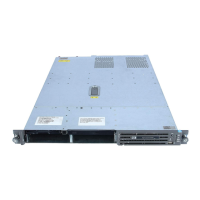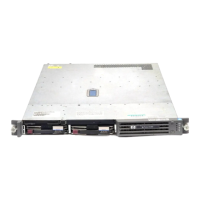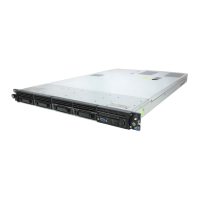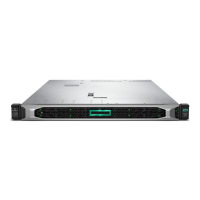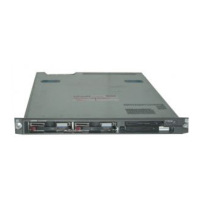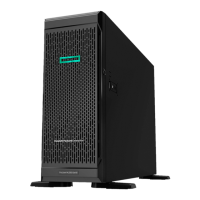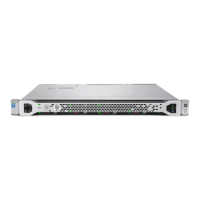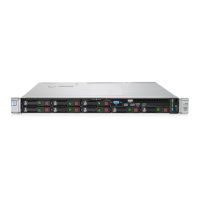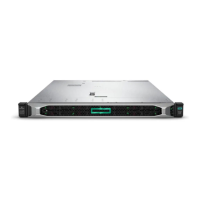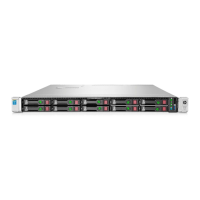Removal and replacement procedures 27
Battery-Backed Write Cache Enabler
The Battery-Backed Write Cache Enabler, also called the battery pack, works with the cache module to
provide transportable data protection, increase overall controller performance, and maintain any cached
data for up to 72 hours. The NiMH batteries in the battery pack are continuously recharged through a
trickle-charging process whenever the system power is on. Under normal operating conditions, the battery
pack lasts for 3 years before replacement is necessary.
CAUTION: To prevent damage to the equipment or server malfunction, do not add or remove the battery
module while an array capacity expansion, RAID level migration, or stripe size migration is in progress.
IMPORTANT: The battery module may have a low charge when installed. In this case, a POST error
message is displayed when the server is powered up, indicating that the battery module is temporarily
disabled. No action is necessary on your part. The internal circuitry automatically recharges the batteries
and enables the battery module. This process may take up to 4 hours. During this time, the array controller
will function properly, but without the performance advantage of the battery module.
NOTE: The data protection and the time limit also apply if a power outage occurs. When power is restored
to the system, an initialization process writes the preserved data to the hard drives.
1. Power down the server ("Powering down the server" on page 11).
2. Extend the server from the rack, if applicable ("Extending the server from the rack" on page 11).
3. Remove the access panel ("Removing the access panel" on page 13).
IMPORTANT: Data in the BBWCE will be erased when you disconnect the battery.
4. Disconnect the battery module cable from the BBWCE and from the Smart Array 6i memory
connector on the system board.
5. Remove the battery module cable from the cable clip on the system board.
6. Remove the Smart Array 6i memory module.
7. Turn the quarter-turn fasteners counter-clockwise to unlock the module.

